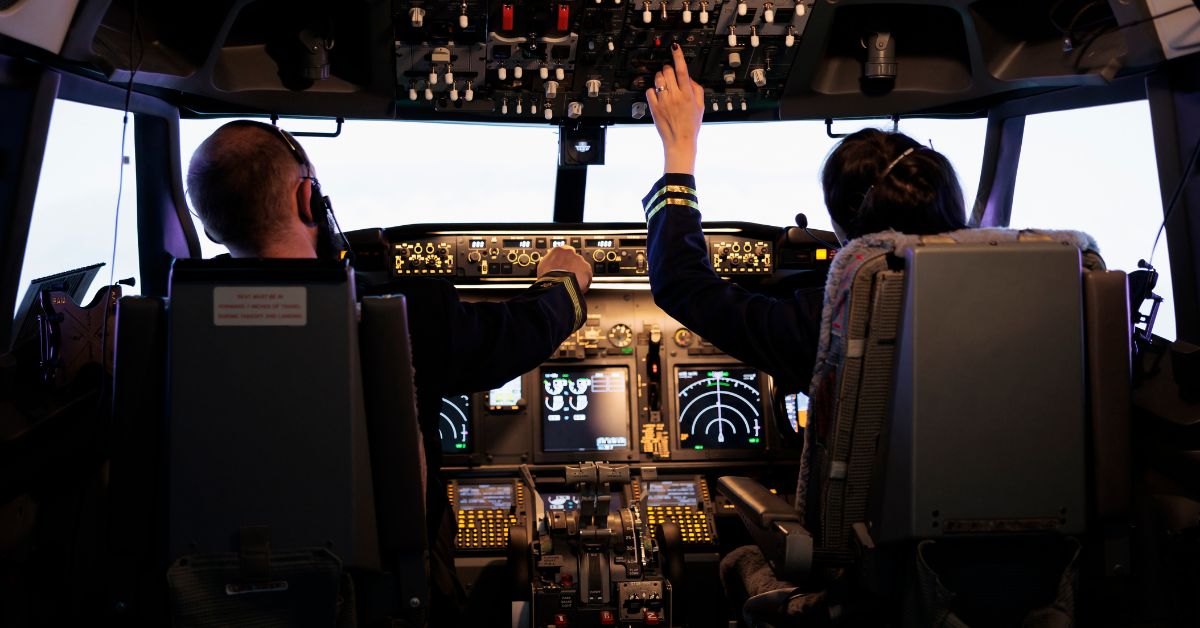The aviation medical exam is an integral part of every pilot’s journey that determines whether they are physically and mentally fit to operate aircraft. Therefore, a pilot must always stay on top of their health, and document this when they apply for their medical certificate. When a pilot is prepared well for the medical exam, it makes the process much easier. If you are planning to take your pilot or ATC medical exam in Florida, this blog will be your go-to guide to help you attain your medical certificate seamlessly.
Each pilot is responsible for their safety and that of others, including those beyond the boundaries of their cockpit. This includes ensuring they are physically and mentally fit to fly an aircraft. The Aviation Medical Examiners (AMEs) are responsible for certifying pilots as being fit to fly through an important medical exam process. In a state like Florida, where aviation remains an essential industry, receiving this certification from Aviation Medical Examines in Florida remains a crucial milestone.
Flying an airplane requires good physical and mental strength. Pilots should be vigilant and responsive; a split second of distraction can make a massive difference in the complex process of flying. To meet the responsibilities of flying, pilots need to be in good health before, during, and after flights.
Diet and nutrition play a vital role in the health of pilots. Eating a balanced diet that includes fruits, vegetables, proteins, and whole grains provides essential nutrients the body needs. It gives them the sustained energy and health they need to fly or act as ATC in Florida. Prioritizing hydration is also crucial, especially during flights, where the dry cabin air combined with high altitude can lead to dehydration. Pilots can maintain peak performance throughout their flights by fueling their bodies with the proper nutrients and staying hydrated.
Regular exercise is important for pilots and air traffic controllers to maintain their physical conditioning. This supports mental sharpness while flying or guiding pilots safely, and helps reduce the likelihood of errors due to the stress and fatigue which may be experienced in aviation.
Stress Management And Mental Health
Pilots in the aviation industry are familiar with high-pressure environments and packed schedules. Managing all the pressure with sound reasoning and strong focus is paramount. Hence, managing stress effectively is essential for functioning safely and maintaining well-being in aviation.
Having a good work-life balance is important for managing stress in aviation. Using mental health checklists to self-assess whether an aviator is ready to fly is an important part of responsible aeronautical decision-making. Pilots with a history of or current mental health issues should be sure to discuss them with an experienced AME prior to their appointment for a medical certificate.
Current and aspiring pilots and ATC candidates should also discuss any recent changes in their health due to stress or mental issues with their aviation medical examiner in Florida. Doing this can lead to early identification of issues and ensure appropriate steps are taken toward a medical certificate when appropriate.
How Important is Sleep for A Pilot’s Health?
Pilots must be responsive to make rapid decisions, as even a fraction of a second can make a huge difference. Sleep is essential for pilots to be attentive and must not be neglected in their routine. Sleep deprivation is a significant risk to flight safety due to potential impairment of cognitive function, reaction times, and decision-making abilities.
Good Health Care And Regular Health Checkups
Regular medical check-ups and screenings are important for diagnosing health problems early. Monitoring the pilot’s health and reporting any new symptoms that can lead to worse health conditions is crucial.
Pilots can ensure they meet or exceed the FAA health standards by staying on top of their health conditions and following medical advice. Regular monitoring by a healthcare provider allows pilots and ATCs to take proactive measures to help safeguard their medical health and overall well-being. This ensures that they are safe to fly and operate an aircraft or guide pilots while ensuring that their lives and those of others are in good hands.
Overall Pilot and ATC Health
Maintaining pilot and ATC health is a multi-factor approach that includes physical fitness, mental well-being, and proactive healthcare. Prioritizing sleep, getting exercise, and having regular medical checkups can support overall pilot and ATC health and boost their performance in the cockpit or tower.
Investing in pilot health is not just a regulatory requirement but a commitment to safety and excellence in aviation. By prioritizing their health, pilots can ensure they’re fit to undertake the responsibilities of flying, safeguarding themselves, their passengers, and those in the sky and on the ground around them.
If you have questions for a HIMS-certified and experienced Senior Aviation Medical Examiner in Florida, contact Dr. Auren Weinberg at Aviation Medicine. Book your consultation by calling (727) 648-2402 or sending an email to aweinberg@medavex.org

